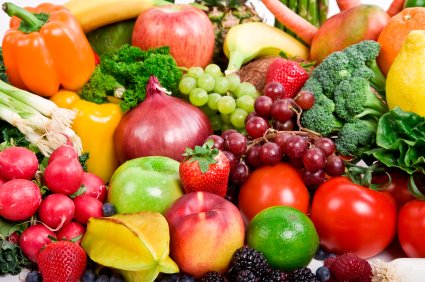Eating a balanced diet is vital for good health and well-being.
Food provides our bodies with the energy, protein, essential fats, vitamins and minerals to live, grow and function properly.
We need a wide variety of different foods to provide the right amounts of nutrients for good health. Enjoyment of a healthy diet can also be one of the great cultural pleasures of life.
The Australian Dietary Guidelines use the best available scientific evidence to provide information on the types and amounts of foods, food groups and dietary patterns that aim to promote health and wellbeing, reduce the risk of diet-related conditions and reduce the risk of chronic disease.
The Australian Dietary Guidelines are for use by health professionals, policy makers, educators, food manufacturers, food retailers and researchers and encourage healthy dietary patterns to promote and maintain the nutrition-related health and wellbeing of the Australian population
The content of the Australian Dietary Guidelines applies to all healthy Australians, as well as those with common diet-related risk factors such as being overweight. They do not apply to people who need special dietary advice for a medical condition, nor to the frail elderly.
A website on the Eat for Health Program is at www.eatforhealth.gov.au.
- Australian Dietary Guidelines (2013)
- A modelling system to inform the revision of the Australian Guide to Healthy Eating (2011)
- A review of the evidence to address targeted questions to inform the revision of the Australian Dietary Guidelines
Eat 6x a Day. No more kicking off the day with coffee, then nothing until lunch time, then a big dinner, then some late-night snacking. Build the habit of eating 6 times a day, without forgetting in-between meals.
Eat Breakfast. Your body will use muscles for energy if you don’t eat breakfast. You want to go from skinny to muscular. Get calories from the first hour. Build the habit of eating breakfast.
Eat Every 3 Hours. Set times to eat and stick to them. Breakfast 7 a.m., snack 10 a.m., lunch 1 p.m., snack 4 p.m., dinner 7 p.m. and before bed snack 10 p.m.
Eat Calorie Dense Food. Veggies are healthy but don’t work well if you want to go from skinny to muscular. 250g broccoli for example has only 100kcal. You need calorie-dense food.
Whole Grain Carbs. Oats, rice, breads, pasta, potatoes, yams, beans, etc. 200g whole grain pasta is 700kcal.
Milk. If you don’t fear gaining some fat, go for whole milk. Else use skimmed milk. 1 liter whole milk is 500kcal.
Nuts. Almonds, cashews, walnuts, peanuts, etc. 100g peanuts is 500kcal. Also try peanut butter.
Healthy Fats. Flax oil, liquid fish oil, olive oil, etc. 1 Tbsp. of each gets you 300kcal daily.
Get Protein. You need protein to build muscle and to recover from workouts. Get at least 1g of protein for every pound of bodyweight each day.
Sources of protein:
Lean red meat. Beef, pork, lamb, deer, buffalo, etc.
Poultry. Chicken, turkey, duck, etc.
Fish. Tuna, salmon, sardines, mackerel, etc.
Eggs. Eat the yolk, it’s full of vitamins.
Dairy. Milk, cheese, cottage cheese, quark, yogurt, etc.
Whey. Not necessary but great for easy post workout shakes.
